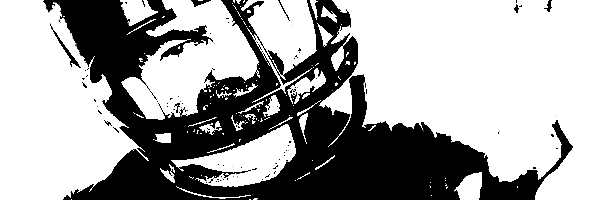
Brands help categorize the modern world. Toyota or Ford, Lulu Lemon or Levis, CNN or Fox News? Brands no longer just sell. They correspond with personal ideologies, and reflect our narratives back to us.
We’re Pack Animals

Those who dismiss branding as a passing trend only need to look around, and go back in time. Humans are pack animals; we gravitate toward groups and seek approval from our peers. It stems from evolutionary survival tactics, where humans were able to fend off enemies and danger by cooperating. In a pack, we gain a safe sense of belonging.
Brands help us orient our needs and wishes into categories that represent how we see ourselves, and how we wish to be. For instance, if you let a stranger into your home, he or she would likely be able to easily identify your social class, what you care about, your pastimes, and so on.
It’s like fashion. A Hugo Boss suit might boast: “I’m sleek, sophisticated and successful.” Meanwhile, an AC/DC concert shirt could shout: “I wanna rock, drink beer and stick it to the man!” There’s comfort in being with similar people. Place a well-dressed, metro-sexual man in a rough biker bar, or a bushy biker in a chic, ultra-modern lounge, and heads will turn. The comfort can quickly shift to tension and even threat.
We naturally form affiliations with brands, fashion and people that correspond with our personal ideology. Some declare their devotion more boisterously than others. Consider a grown man at a football game, decked out in a jersey and matching face paints, bellowing when his team scores a touchdown. It’s not a ploy for attention. No, it’s what psychologists call ‘group loyalty performance’.
Brands Create Movements

Brands that attract like-minded people and build communities don’t just categorize the world — they can change it. A recent Global Strategy Group survey revealed that 78% of American adults agreed companies should take action to address important issues facing societies. And companies are listening.
For instance, when Apple CEO Tim Cook opposed US state bills seen as discriminatory to lesbian, gay, bisexual and transgender people, others were more inclined to oppose it, influencing outcomes in other states. Companies like Walt Disney, Deutsche Bank and PayPal followed suit.
It’s good for business because consumers want to feel that companies share their beliefs. In fact, US consumers are 8.1% more likely to buy from a company that shares their opinions and 8.4% less likely to buy from a company that does not, according to research conducted at the University of Central Florida.
What Do You Stand For?
Businesses need to win hearts and keep them. You do that by making a difference. By showing what moves you. What you stand for, and stand against. You need to represent values and ideas. It’s become a part of the way we find our people and catalyze social change.
Differentiate your business. Say goodbye to dummy text and hello to smart content.






Leave a Reply